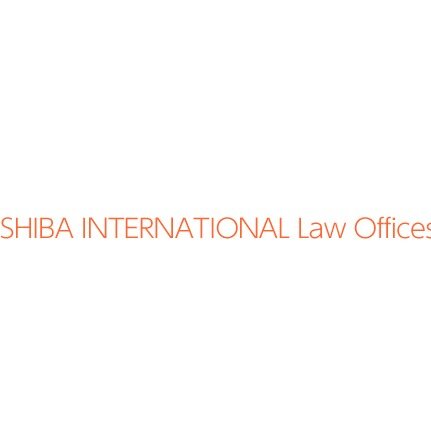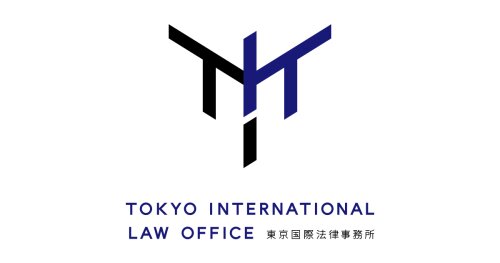Best Oil, Gas & Energy Lawyers in Tokyo
Share your needs with us, get contacted by law firms.
Free. Takes 2 min.
List of the best lawyers in Tokyo, Japan
About Oil, Gas & Energy Law in Tokyo, Japan
Tokyo, Japan is a significant hub for the energy sector, playing a crucial role in the country's energy policy and regulation. The oil, gas, and energy sector in Tokyo is diverse, including natural gas, oil importation, renewable energy projects, nuclear energy management, and more. Japan relies heavily on energy imports due to limited natural resources, making regulatory compliance and legal oversight crucial. The government encourages innovations and adaptations in renewable energy, aiming for a sustainable future. Therefore, understanding legal frameworks in this sector is essential for both individuals and companies operating within or entering the Japanese energy market.
Why You May Need a Lawyer
Legal assistance may be necessary in the oil, gas, and energy sector due to the industry’s complexity, strict regulations, and compliance requirements. Common situations include:
- Contract Negotiations and Drafting: Involves drafting and negotiating contracts for production sharing, supply, and joint ventures.
- Regulatory Compliance: Ensuring that operations conform with local and international laws concerning safety, emissions, and environmental impact.
- Dispute Resolution: Handling disputes that may arise from breaches of contract or regulatory non-compliance.
- Mergers and Acquisitions: Legal guidance during mergers or acquisitions within the energy sector.
- Licensing and Permits: Assisting with the acquisition of necessary licenses and permits for operations.
- Environmental Law: Navigating environmental laws related to sustainability and energy efficiency.
Local Laws Overview
The regulatory environment for oil, gas, and energy in Tokyo is framed by comprehensive legal structures, including the Energy Conservation Act, the Electric Utility Industry Law, and the Renewable Energy Law. These laws govern everything from energy usage and efficiency to the facilitation of renewable energy sources. Key regulatory bodies, such as the Ministry of Economy, Trade, and Industry (METI), enforce these laws. Compliance with Japan’s stringent environmental laws and international agreements, like the Paris Agreement, is crucial for entities operating in this sector.
Frequently Asked Questions
What types of energy sources does Japan focus on?
Japan focuses on a mix of energy sources including natural gas, nuclear power, renewable energy sources like solar and wind, and imported oil to meet its energy demands.
Who regulates the energy sector in Tokyo?
The Ministry of Economy, Trade, and Industry (METI) is the primary regulator for the energy sector in Japan, responsible for policies and regulations.
What are the common legal issues in the energy sector in Japan?
Common issues include compliance with environmental regulations, licensing, contractual disputes, trading regulations, and intellectual property rights concerning new technologies.
Are there incentives for renewable energy projects in Japan?
Yes, the Japanese government offers several incentives, including feed-in tariffs and subsidies to promote renewable energy projects and innovation in this field.
Is nuclear energy legal in Japan?
Yes, under strict regulations. Following the Fukushima disaster, regulations have been significantly tightened, and operations are closely monitored for safety.
Can foreign companies operate in Japan’s energy sector?
Yes, foreign companies can operate in Japan’s energy sector, but they must comply with Japanese laws and may require joint ventures or partnerships with local firms for certain activities.
How does Japan manage oil imports?
Japan heavily relies on oil imports, primarily from the Middle East, and manages these through stringent customs regulations and strategic reserves.
What is the process for resolving disputes in the energy sector?
Dispute resolution can involve negotiation, arbitration, or litigation. Arbitration is commonly used, with cases often managed by the Japan Commercial Arbitration Association (JCAA).
What role does environmental law play in Japan’s energy sector?
Environmental law is a critical component, focusing on reducing carbon emissions, promoting renewable energy, and protecting natural ecosystems from energy-related activities.
How can companies ensure compliance with Japanese energy regulations?
Companies can ensure compliance by obtaining legal counsel familiar with local laws, maintaining updated compliance programs, and regular audits and reporting as required by METI.
Additional Resources
For additional guidance or information, consider reaching out to:
- Ministry of Economy, Trade, and Industry (METI)
- Japan Oil, Gas and Metals National Corporation (JOGMEC)
- Japan Renewable Energy Foundation
- Environmental and Energy Study Institute
- Japan Commercial Arbitration Association (JCAA)
Next Steps
If you need legal assistance in Oil, Gas & Energy in Tokyo, Japan, consider the following steps:
- Identify your specific legal needs, whether it’s contractual, compliance, or dispute resolution.
- Seek out a specialized attorney or law firm with expertise in the Japanese energy sector. Look for recommendations and reviews to ensure credibility.
- Prepare all relevant documentation and information related to your legal issue before consulting with a lawyer.
- Discuss potential strategies, outcomes, and costs involved with your legal advisor to make informed decisions.
- Ensure ongoing communication and follow-up to stay informed about your legal matters.
Lawzana helps you find the best lawyers and law firms in Tokyo through a curated and pre-screened list of qualified legal professionals. Our platform offers rankings and detailed profiles of attorneys and law firms, allowing you to compare based on practice areas, including Oil, Gas & Energy, experience, and client feedback.
Each profile includes a description of the firm's areas of practice, client reviews, team members and partners, year of establishment, spoken languages, office locations, contact information, social media presence, and any published articles or resources. Most firms on our platform speak English and are experienced in both local and international legal matters.
Get a quote from top-rated law firms in Tokyo, Japan — quickly, securely, and without unnecessary hassle.
Disclaimer:
The information provided on this page is for general informational purposes only and does not constitute legal advice. While we strive to ensure the accuracy and relevance of the content, legal information may change over time, and interpretations of the law can vary. You should always consult with a qualified legal professional for advice specific to your situation.
We disclaim all liability for actions taken or not taken based on the content of this page. If you believe any information is incorrect or outdated, please contact us, and we will review and update it where appropriate.
















